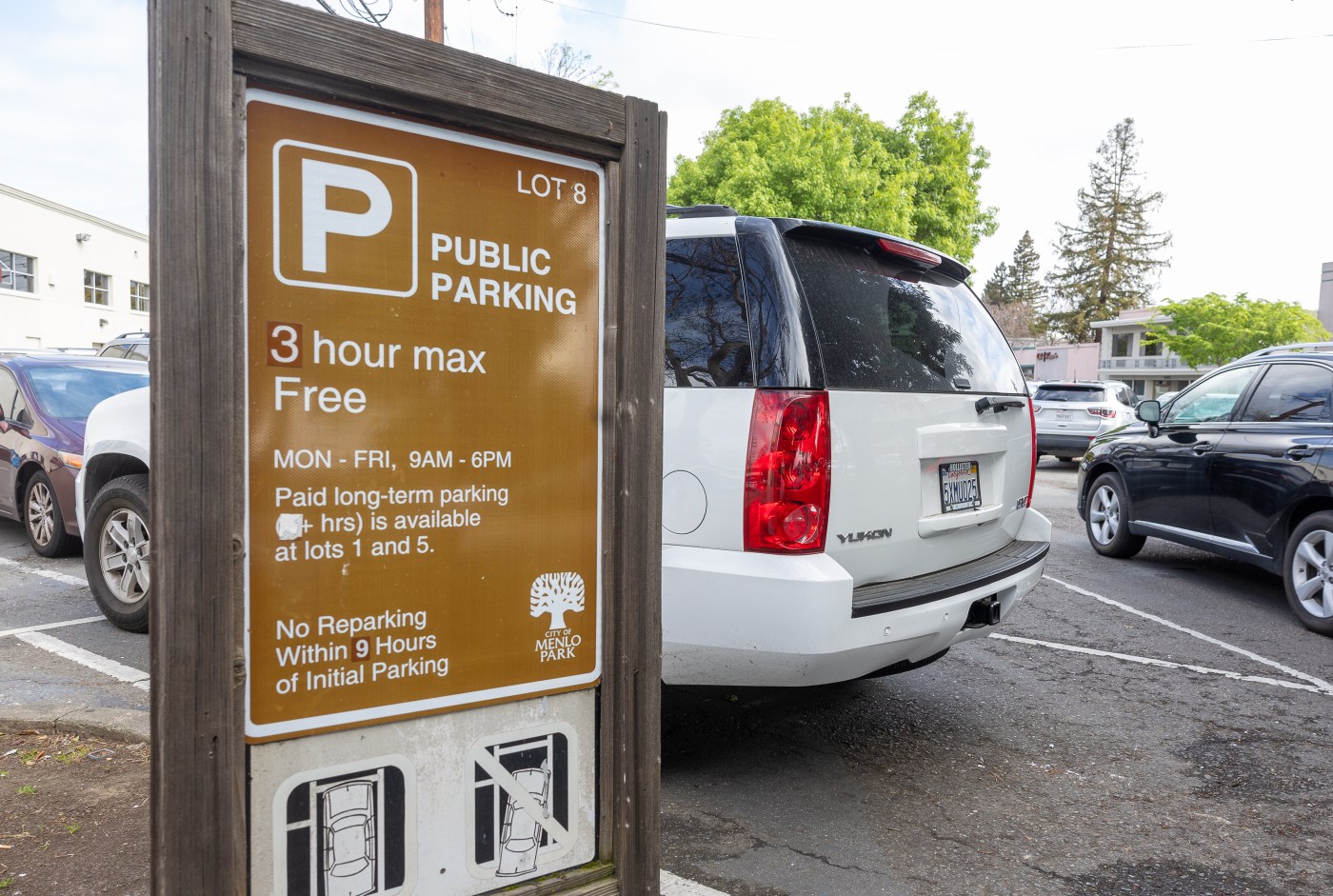
Despite ongoing lawsuits and a possible ballot initiative, the Menlo Park City Council is moving ahead with plans to convert downtown parking lots into affordable housing.
During a study session Tuesday night, the council informally voted to direct city staff to solicit proposals from six of seven pre-qualified developers. The move signals continued momentum on the project, even as community opposition mounts.
The city aims to build at least 340 affordable housing units across three parking lots in downtown Menlo Park. The plans have divided the community since the City Council voted in January to invite developers to express interest in the project, pitting affordable housing advocates against business owners concerned over revenue impacts, and patrons worried about the loss of convenient parking and accessibility.
The six developers invited to submit proposals are Alliant Communities, MidPen Housing, Presidio Bay Ventures, Eden Housing, Path Ventures, and Related California in association with Alta Housing.
City staff are expected to bring back a draft of the request for proposals to the City Council by the end of August, with developers anticipated to respond by the end of fall.
Members of the City Council raised several concerns during the meeting, including the need to replace existing parking spaces, implement traffic mitigation measures during construction, and assess whether the project should be paused in light of legal and political challenges.
Related Articles
New bill would allow California doctors to enter diversion program for treatment
Livermore rally demands father be returned from ICE detainment
Trump tax bill will add $2.4 trillion to the deficit, CBO says
After FBI raid and wacky TV interview, East Bay councilman learns why he’s under investigation
Gilroy budget sets up passion-filled flashpoint over fate of parks
Councilmember Drew Combs alone advocated for a pause, citing widespread business concerns and potential negative impacts from parking loss.
“I’d be supportive of a pause,” Combs said. “There are a lot of swirling dependencies at play that may be outside of the council’s control. It seems like an appropriate approach to see how some of those things play out.”
Councilmember Jeff Schmidt warned that delays could jeopardize the city’s state-mandated housing element and expose Menlo Park to “builder’s remedy” projects — developments that bypass local zoning rules if they include enough affordable units.
Already in the pipeline is a builder’s remedy project at Menlo Park’s former Sunset Magazine headquarters, proposing 665 housing units, a 130-room hotel, a Montessori school, and 324,000 square feet of office space. If built, it would be the tallest structure in San Mateo County.
In neighboring Portola Valley, state officials previously revoked the town’s housing element certification for allegedly stalling on rezoning efforts required to accommodate affordable housing.
Meanwhile, outside City Hall on Tuesday, members of Save Downtown Menlo Park — a group opposed to the project — were collecting signatures for a ballot initiative that would require voter approval before any housing is built on city parking lots.
The group argues that even replacing the lots with garages would deter visitors from downtown. They propose building affordable housing near the city’s Civic Center instead.
To qualify for the ballot, the measure requires signatures from at least 10% of Menlo Park’s approximately 20,000 registered voters. Organizers have so far gathered over 100 since its launch last month.
“The problem with the current proposal isn’t the mission — it’s the location,” said Richard Draeger, owner of Draeger’s Market in downtown Menlo Park. “It could take four-and-a-half years of construction. A build-out of this length would devastate the downtown business community. The livelihoods of thousands of employees would be destroyed. The surrounding neighborhood would lose downtown amenities, and property values would drop.”
Supporters of the redevelopment argue the city can’t afford to delay amid a worsening housing crisis.
Francesca Enzler, a substitute teacher, said the plan would offer a rare opportunity for working-class residents to live in Menlo Park.
“I was very surprised to learn that based on my income I could qualify for one of these homes,” Enzler said. “It’s really meaningful to see support for people like me. This extends to many others in important professions who also deserve to live here.”
Menlo Park, home to tech giant Meta and major venture capital firms, is among the region’s most expensive cities to live in. An individual earning $109,700 annually is considered low income in San Mateo County, while $41,150 qualifies as extremely low income.
Save Downtown Menlo Park also filed a lawsuit in April to block the project, claiming the city holds the parking lots in a “fiduciary capacity” — meaning the land must be used for public benefit, not private development. The city disputes this interpretation.
Menlo Park’s housing element outlines a plan to add nearly 3,000 new homes by 2031. Across the Bay Area, cities are collectively required to build more than 440,000 homes during that timeframe, according to the Association of Bay Area Governments.